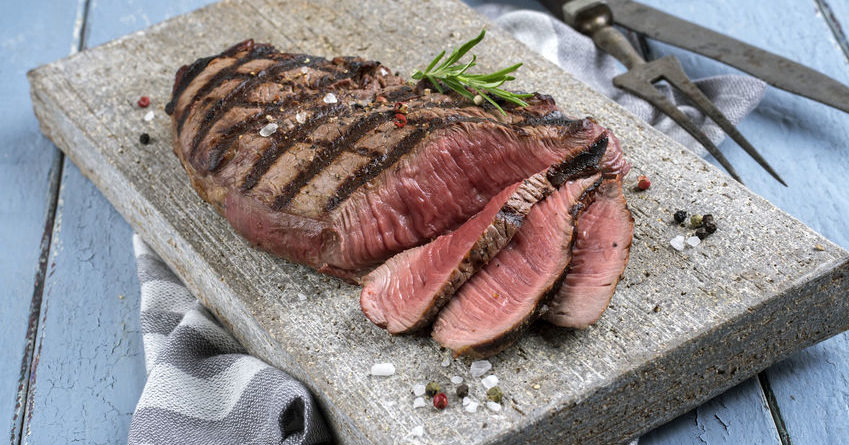Written By Julie Paiva, CHHC
Over the years beef has gotten a bad rap. And while it’s true, some beef on the market should not be touched with a ten foot pole; in its unadulterated form, beef is actually beneficial to the body and full of micronutrients. So how do we differentiate the good from the bad? Fortunately, there are some key words to look for when at the grocery store. The short and simple answer is to always go for the grass-fed, grass-finished, and humanely-raised beef.
The More Nutritious Choice
Contrary to popular belief, an animal’s diet can have a profound influence on the nutrient content of its products. Grass-fed beef comes from cows that are allowed to graze on pasture and consume their natural diet of grass. It is nutrient-dense and lower in total overall fat and calories than it’s grain-fed counterparts. Grass-fed beef is also higher in omega-3 fatty acids and conjugated linoleic acid (CLA), precursors for vitamin A and E and antioxidants, compared to grain-fed beef.
The More Humane Choice
Organic, grass-fed beef production requires more effort and attention to detail as ranchers have to follow strict guidelines that’ll ensure the meat’s freshness and quality. These farmers treat their animals humanely. Cows are supposed to spend their entire lives outside, feeding on grass in open pastures. As they freely forage for food, cattle can grow at their natural pace. Cows who live out in their natural environment are also healthier and happier. Therefore, grass-fed cattle are typically not given antibiotics, and are free of unnecessary chemicals such as artificial hormones, which is very different from the consistent and common use of antibiotics on feed-lot, grain-fed cows. A grass-rich diet consequently boosts the cow’s health and the quality of meat.
The More Natural Choice
As the demand for meat has increased monumentally, the meat industry has had to find ways to produce more product more efficiently and quickly. We have all heard that old saying, “Quality over quantity”. This is no different. The mass-production of beef resulted in harsher living conditions, a grain-based diet (usually consisting of GMO’s), and the use of antibiotics, which all diminishes the nutrient value of the meat. In addition, these animals are often given hormones to unnaturally increase their weight and hence yield more meat.
The Cleaner Choice
Most of the beef you find on the grocery store shelves is from grain-fed cows. The typical feed is made up primarily of corn and soy, and if you are familiar with the Dr. Brown diet, you know that these are both pro-inflammatory foods. On top of that, feeding cattle grain makes their intestinal tracts much more acidic, which promotes the growth of bacteria like E. Coli. About 80 percent of antibiotics sold in the United States go to livestock like cows, so it’s not crazy to be worried about antibiotics in grain-fed beef. These cows are often in confinements that are filthy and in very close quarters with other cows. They can have exposure to dead and sick cows. This is another reason why they are pumped with antibiotics.
The Greener Choice
Many people avoid beef and meat entirely because of environmental concerns. Environmental concerns are not an issue with grass-fed beef production. There are actually positive long-term effects of grass-fed cattle by decreasing greenhouse gas emissions, increasing biodiversity of pasture ecosystems and improving quality of run-off water from well-managed pastures. Overall, grass-fed beef has actually been shown to reduce the carbon footprint and help the environment rather than hurt it. When you eat grass-fed beef, not only are you doing something good for yourself, but you’re also eating with a conscious and promoting the proper treatment of cows.
It is important to be an educated consumer. When you make your next trip to purchase beef, remember all the benefits that grass-fed beef has over grain-fed beef. Grass-fed beef tends to cost more than grain-fed beef, but it is worth every penny. Your body and the environment will thank you for making the switch.




